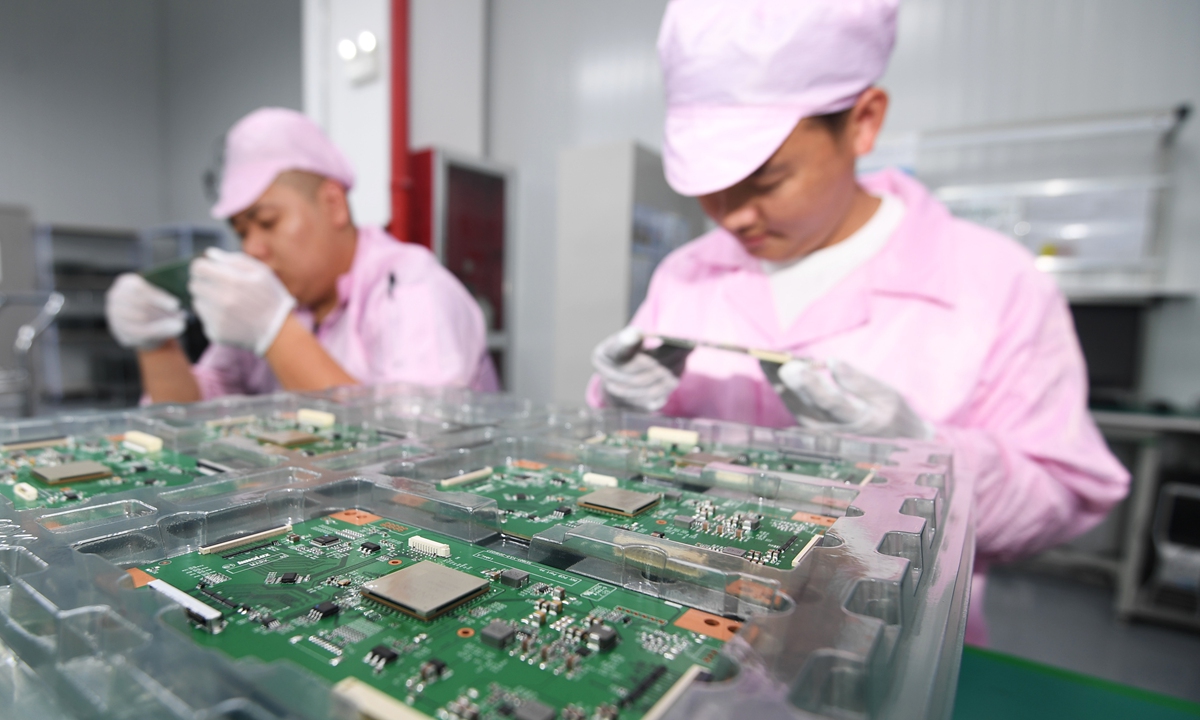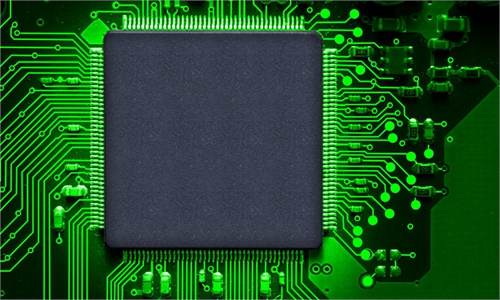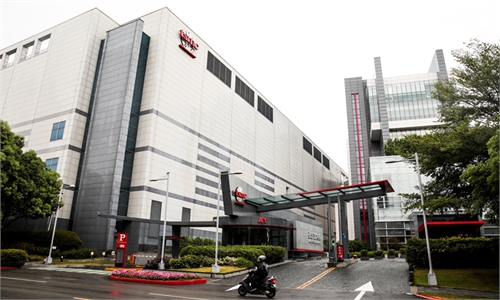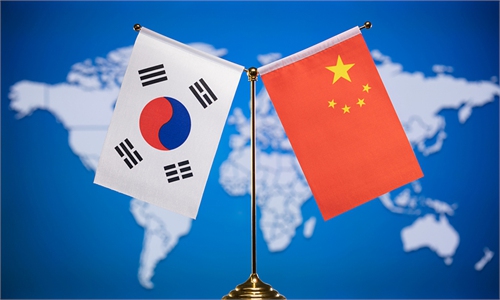Biden signs CHIPS Act, marking major shift in US crackdown on China
Move marks major shift in US approach, but attempt doomed fail: experts

Workers make semiconductors at a company in Guiyang, Southwest China's Guizhou Province on Tuesday. In recent years, China has witnessed the blossoming of its chip industry, thanks to generous government policy support, as well as enthusiastic entrepreneurs and venture investors. Photo: cnsphoto
US President Joe Biden on Tuesday signed into law the so-called CHIPS and Science Act that aims to crack down on China's semiconductor supply chain, setting the stage for an intensified, politically charged battle in the complex global chip industry with profound implications.
The move also marks a serious escalation and a shift in the US' multi-year crackdown on China's chip sector, as Washington resorts to domestic legislations instead of relying on sanctions on specific Chinese companies in the campaign, Chinese industry analysts noted, calling for comprehensive countermeasures from the Chinese government and companies.
The bill includes $52 billion in subsidies for chip manufacturing and research, as well as a $24 billion investment tax credit for chip plants in the US. However, one condition that companies must meet to receive the subsidies is that they must not expand their semiconductor manufacturing in China for 10 years after they get a grant to build a US plant, a Bloomberg report noted.
This is just one example of the US' intensifying campaign to cut China out from the global chip supply chain. The US is also talking to some of its Asian allies such as South Korea and Japan about forming a chip alliance.
Apart from chips, the US is also taking measures to crack down on China's electric car industry, which showed signs of rapid development in recent years. For example, the US Senate recently passed a bill dubbed the Inflation Reduction Act that gives an uncapped $7,500 tax credit to electric cars on the premise that those cars don't use any batteries after 2023 with any Chinese components.
Chen Jia, a research fellow at the International Monetary Institute of the Renmin University of China, said that the aim of all those measures is the US' arbitrary push for supply chains to be removed and decoupled from China.
"The results of such attempts will be nothing but the destruction of open and fair international trade rules, and increased instability for global trade," Chen told the Global Times.
Fu Liang, an independent tech analyst, told the Global Times that such measures are an "upgraded" version of the US' tech crackdown against China, as the US used to target only certain Chinese companies, but now it is trying to thwart China's high-tech development at the national level by using legislation that could affect the whole semiconductor supply chain.
But analysts stressed that it's futile to attempt to lure international semiconductor giants to decouple from Chinese supply chains, as China is the only country in the world that can mass produce semiconductor components at a relatively cheap price, something that no emerging markets can do, not to mention the US with its high labor costs and manufacturing hollowing out.
According to Fu, if global chip companies move their supply chains from China to the US, the subsidies they get from US legislation can hardly cover the incremental costs, not to mention that the subsidies can't last year after year.
Chen said that it's absurd for the US to try to restructure an industry worth tens of trillions of dollars with a bill involving tens of billions of dollars, although the bill might bring benefits to certain companies and groups.
Chinese companies might see mixed effects from such encircling measures from the US. For one thing, the costs of semiconductor or car parts might increase and eat into their profits to an extent that is hard to predict now.
They will also have to rely on themselves to achieve technological breakthroughs, which is not necessarily a bad thing as companies and local governments should be more motivated to put resources into such research and development, Fu said.
Chinese companies are taking active measures to cope with the situation. For example, customs data showed that China imported 186 billion integrated circuit products in the first four months of 2022, down 11.4 percent on a yearly basis, suggesting that Chinese companies are gradually reducing reliance on imports.
Chinese mobile phone companies are also taking action to support domestic suppliers in case they face difficulties in importing products. For example, Huawei launched a plan in recent years to support domestic chip companies by methods such as coordinating chip research and becoming their shareholders, according to media reports.
Fu suggested that Chinese companies should try to use multiple sources of semiconductor imports, as well as search for cooperation space with overseas companies, including those from nations seen as US allies.




